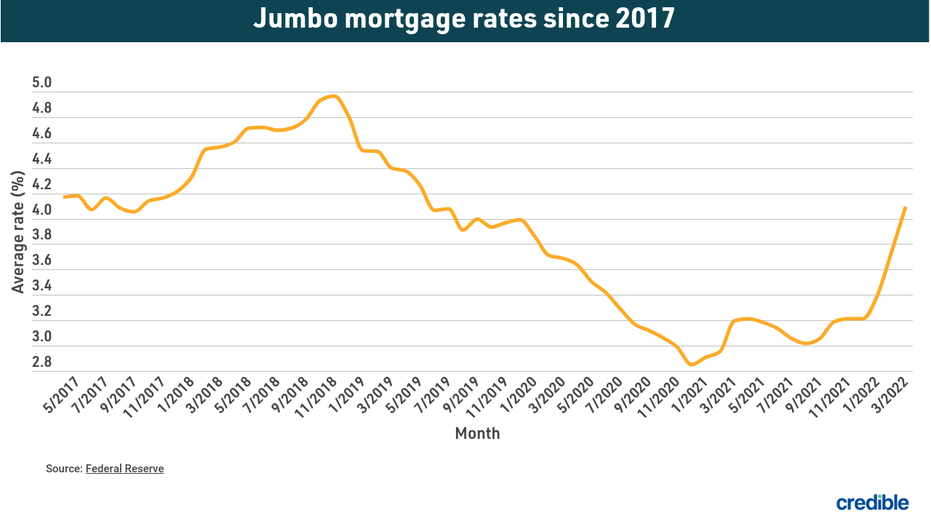Jumbo Loan: Tailored Home Mortgage Solutions for High-Income Borrowers
Jumbo Loan: Tailored Home Mortgage Solutions for High-Income Borrowers
Blog Article
Checking Out the Benefits and Qualities of Jumbo Loans for Your Next Home Acquisition Decision
As the actual estate market evolves, comprehending the details of big lendings becomes significantly relevant for possible buyers taking into consideration high-value buildings. To fully appreciate just how jumbo finances can affect your home purchase approach, it is essential to explore their essential attributes and benefits in greater detail.
What Is a Jumbo Car Loan?

Jumbo car loans are typically used by buyers looking for to acquire high-value residential properties or homes in costly markets. jumbo loan. Provided the larger quantities obtained, loan providers normally impose more stringent credit score needs, consisting of higher credit rating, lower debt-to-income ratios, and bigger down settlements. The rate of interest rates on big financings may be a little greater than those on conforming car loans, reflecting the boosted threat for loan providers
Furthermore, the approval process for a jumbo loan can be more complicated and time-consuming, as loan providers require substantial documents to evaluate the consumer's economic security. Recognizing these nuances is crucial for prospective property owners considering a jumbo finance for their residential property funding needs.
Key Advantages of Jumbo Fundings
One significant advantage of jumbo finances is their capacity to finance higher-priced buildings that go beyond conforming finance limits. This attribute makes them an attractive alternative for customers looking to acquire deluxe homes or properties in high-cost locations where rates generally exceed standard funding limits.
In addition, jumbo lendings frequently come with flexible terms and competitive rates of interest, allowing borrowers to customize their financing to suit their distinct economic circumstances. jumbo loan. This flexibility can consist of choices for variable-rate mortgages (ARMs) or fixed-rate finances, supplying purchasers with the capacity to manage their month-to-month settlements according to their preferences
Another benefit is that jumbo fundings do not call for personal mortgage insurance policy (PMI), which can considerably minimize the overall expense of the lending. With PMI frequently being a considerable expense for traditional finances with reduced down repayments, preventing it can cause considerable cost savings over time.
Additionally, customers of big loans typically have access to greater loan quantities, enabling them to spend in residential or commercial properties that satisfy their way of life needs. This access encourages buyers to act emphatically in competitive realty markets, securing their wanted homes much more properly. Generally, big financings provide important advantages for those seeking to fund costs buildings.
Qualification Demands for Jumbo Loans
Jumbo loans feature specific qualification needs that prospective consumers must meet to safeguard financing for high-value residential properties. Unlike conventional fundings, which have actually set limitations based on the adapting loan limits established by government-sponsored entities, straight from the source jumbo finances go beyond these thresholds, requiring more stringent criteria.

Furthermore, jumbo loans typically demand a substantial down settlement, frequently ranging from 10% to 20% of the acquisition rate, depending on the loan provider's plans and the consumer's financial situation. Fulfilling these eligibility demands can position borrowers favorably in protecting a jumbo financing for their preferred building.
Contrasting Jumbo Loans to Traditional Loans
Understanding the differences between jumbo car loans and standard loans is essential for homebuyers navigating the premium actual estate market. Big financings exceed the conforming car loan limitations established by the Federal Real Estate Money Company (FHFA), which indicates they are not eligible for acquisition by Fannie Mae or Freddie Mac. This causes various underwriting requirements and requirements for borrowers.
In comparison, standard loans commonly stick to these limitations, permitting a more structured authorization process. Big fundings frequently require more stringent credit history scores, bigger down payments, and better monetary reserves. As an example, while a conventional financing might call for a down settlement of just 3% to 5%, big car loans normally require a minimum of 10% to 20%.
Rates of interest on big car loans may differ from those of standard finances, often being a little higher because of the raised threat lending institutions presume - jumbo loan. The capacity for substantial funding can be advantageous for buyers seeking deluxe residential properties. Eventually, recognizing these distinctions makes it possible for homebuyers to make educated choices, straightening their funding alternatives with their distinct investing in demands and financial situations
Tips for Securing a Jumbo Financing
Securing a jumbo finance requires careful planning and prep work, as lenders usually enforce more stringent requirements compared to traditional car loans. To improve your chances of approval, start by inspecting your credit history and dealing with any kind of concerns. A score of 700 or greater is commonly favored, as it shows creditworthiness.
Following, gather your monetary documents, including tax returns, W-2s, and bank statements. Lenders usually require detailed evidence of income and possessions to evaluate your ability to pay back the finance. Maintaining why not find out more a low debt-to-income (DTI) proportion is also important; goal for a DTI below 43% to boost your application's competition.
Additionally, consider making a bigger down settlement. Numerous lenders look for at the very least 20% down for jumbo lendings, which not just minimizes your car loan amount but additionally signals monetary security. Engaging with a knowledgeable mortgage broker can supply indispensable insights right into the procedure and assist you browse different lender alternatives.

Conclusion
In summary, big loans present considerable advantages for buyers looking for homes that go beyond conventional funding limitations. Comprehensive understanding of both the benefits and needs linked with big loans is crucial for making notified home purchase choices in a competitive real estate market.
The passion prices on big car loans may be a little higher than those on conforming finances, showing the raised threat for loan providers.
While a conventional financing may call for a down repayment of as little as 3% to 5%, jumbo financings typically demand a minimum of 10% to 20%.
Rate of interest prices on jumbo lendings might differ from those of traditional loans, commonly being slightly greater due to the increased danger lending institutions assume.Safeguarding a jumbo financing requires cautious preparation and preparation, as loan providers often impose more stringent needs contrasted to conventional lendings. Lots of lending institutions seek at least 20% down for jumbo finances, which not just minimizes your lending amount but additionally signals economic stability.
Report this page